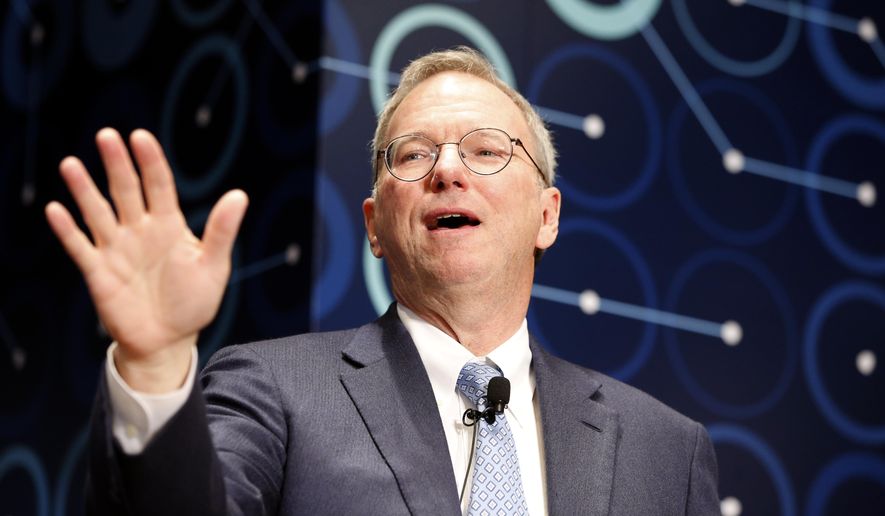Eric Schmidt, former CEO of Google, is indirectly funding the salaries of officials in a White House office tasked with advising President Biden on technical and scientific issues, according to a report.
More than two dozen jobs in the White House are funded by the Federation of American Scientists, according to a report Friday from Politico. FAS is a nonprofit think tank tackling national security challenges with scientific analysis.
The salaries for the FAS fellows inside the White House are covered by Mr. Schmidt’s research and investment firm, Schmidt Futures, according to the Politico investigation.
Schmidt Futures is registered as a limited liability corporation called the Future Action Network, which legally bars it from funding federal government positions. But it can provide financing to a nonprofit entity such as FAS, which can then fund the White House positions under a 1970 law.
The Intergovernmental Personnel Act of 1970 allows some nonprofits, universities and federally funded research centers to cover the salaries of certain executive branch employees, filling skill gaps with temporary assignments.
FAS fellows have served or currently serve in the White House Council of Economic Advisers, the White House Council on Environmental Quality, the Department of Energy, the Department of Education, the Department of Health and Human Services, the Department of Transportation, the Department of Homeland Security and the Federal Trade Commission, Politico said.
At least six FAS fellows work in the Office of Evaluation Sciences in the General Services Administration, which serves as an outside consultant to agencies across the executive branch.
Members of the Biden administration are well aware that a significant amount of money for the FAS fellows comes from Schmidt Futures, according to a Politico investigation, which reported that the influence of the two organizations is sometimes conflated.
Of particular concern is that the White House science office, where the FAS fellows work, is researching future technologies and potential regulations of artificial intelligence.
Mr. Schmidt is among the country’s leading advocates for federal research and greater use of artificial intelligence, raising questions of a possible conflict of interest.
In a statement to Politico, a spokesperson for Mr. Schmidt defended the arrangement, saying the tech mogul “fully complied with all necessary disclosure requirements.”
The spokesperson also said the FAS fellows are focused on policy decisions that would be beneficial to the American public, not Mr. Schmidt.
“While it is appropriate to review the relationship between the public and private sectors to ensure compliance and ethics oversight, there are people with the expertise and experience to make a monumental change and advance our country, and they should have the opportunity to work across sectors to maintain our competitive advantage for public benefit,” the statement said.
A White House spokesperson said Mr. Schmidt is not exerting influence on policy matters.
“Any suggestion otherwise is false. We enacted the most stringent ethics guidelines of any administration in history to ensure our policy processes are free from undue influence,” the White House said in a statement.
• Jeff Mordock can be reached at jmordock@washingtontimes.com.




Please read our comment policy before commenting.